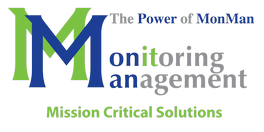Finding & Keeping Honest Vendors
"Bill," I said, "I want to help you guys on this project, but you have to give me something to work with."
"All I can tell you," whispered Bill, "Is that we have a big renovation project coming up, and you need to be involved."
"Ok, I want to help," I exclaimed, "but I need to know a little more about it."
"I'm not supposed to discuss it with anyone," Bill said firmly.
"Alright, but how is anyone going to work on the project if they don't know what it is?" I honestly wanted to know.
Bill looked me in the eye, and with a sly grin, replied: "I'll rephrase that: I'm not supposed to discuss it with vendors."
Ouch. That actually hurt a little bit.
Where did I go wrong?
I've known Bill for years. My company has worked on a lot of his projects, and I am confident we've provided excellent service to him and his organization. So it couldn't be a lack of history.
Bill is right up at the top of the food chain in the facilities and engineering department, so I know he is the right guy to be working with.
He sees all of the construction projects, and is well aware of which ones are important enough to warrant our higher level of product quality and efficiency versus standard commodities. In the past, he has been an ally and sort of air traffic controller for us: informing us when a mission critical project was coming down the pipeline so we could get involved.
The last project we worked on with Bill just wrapped up a few weeks before, and tests showed our new equipment was saving his organization a solid 32% in electrical costs versus the old equipment it replaced. So I know he is happy with our brand.
Where did I go wrong? Why did I suddenly feel like I was on the outside looking in?
Trust vs. Trust
If asked whether my company is trusthworthy, I would emphatically reply "Yes!" It's right there on our website for all to see, and we preach it to our team members every day. It's part of our culture and we stake our reputation on it. Still, I assume any company would claim they are trustworthy. The issue must be deeper than that.
As I tried to wrap my head around the possibilities, I thought of another article about the relationship between vendors and suppliers. I wrote of a valuable lesson I learned about what owners want, and how it's oddly similar to what salespeople want. Yet, I couldn't help but feel like we weren't being trusted. Maybe not us, specifically. More like vendors weren't being trusted with information on this large project Bill was speaking of.
Was it a trust issue? Did Bill worry if he mentioned the project name I would shout it from the rooftops? Wouldn't it be in my best interest to keep any information I received confidential? It must be deeper than that.
As I sat there, trying to wipe the shocked look from my face, I wondered if Bill didn't trust me.
I became a little defensive, and I shouldn't have: "Bill, don't you like our products? We've done a great job for you in the past, right?"
"Yes."
"And this is a replacement project, and our air handler replacements are probably the best option for this type of work, right?"
"Yes"
Bill looked like he wanted to say more, but he didn't budge. I knew something was different. What was I missing? What was different this time? I couldn't imagine he didn't trust me anymore. What was different about this project? He had said it was a big project, so I knew it must be very important to his organization and likely had a high profile. Maybe Bill felt there was too much at stake to share the information.
Looking out for number 1
It's human nature to look out for ourselves. There are those noble souls who live their lives in service to others. But at least in some respects, don't we all do what's best for ourselves?
The key in business, though, is to align your goals with the goals of your stakeholders. So when you succeed, everyone else does, too. Salespeople should make it their business to help their customers succeed. Simply trying to maximize your sales figures always seemed like a short-sighted approach to me.
I think this is an idea that is obvious to most, but sadly missing in practice far too often. Yet, maybe looking out for #1 isn't such a bad thing. As NY Times Bestselling Author Robert Ringer notes:
The sad irony is that if you persist in swimming in the dangerous and uncivilized waters of self sacrifice, those for whom you supposedly sacrifice will often be worse off for your efforts. If, instead, you focus your efforts on looking out for number one, those people you care most about will actually benefit from your actions, because it will put you in a position to be far more helpful to them.
So by looking out for themselves, a vendor can be in a better position to help you, the end user, acheive your goals. The key is to use a vendor partner who truly understands your needs. And I don't mean that you need product XYZ in 3 different sizes by next month. I mean your goals for the future, like: Improving uptime, reducing energy use by 10%, cutting maintenance costs. The things your team discusses and puts up on the board in the lobby. The goals you make for the entire department and organization.
Expand your stakeholder circle
There was obviously a lot at stake with this new project. So much so, that my previous ally and friend was unusually quiet. I did not have enough information to fully understand my customer anymore. I no longer knew what his needs were, but I knew they were more than simply getting a great product or service and saving money.
I quickly changed my mood. There would be nothing gained by being shocked or offended. I realized this was actually a blessing in disguise; an opportunity to get to know my customer even better.
Although I considered my company to be a vendor ally for Bill, we were obviously not a stakeholder with Bill or his organization, at least not in his mind. Being a stakeholder isn't something you take lightly. A stakeholder must share in both victory and defeat, but works as part of the team to notch out more victories than not. Bill needed to know that we had his back!
"Bill, I understand. There's probably a huge project team working on this, complete with a consultant, project managers, the whole bit. Maybe it's too early to share any information with vendors. You wouldn't want to get a million phone calls, would you? You know how salespeople can be!" I said with a grin.
"Yeah," Bill said, letting down his guard, "This is going to be the biggest project coming out of the operations budget for the next two years. We already got the board of directors breathing down our necks to get this right."
I smiled. I understood. This wasn't about products, or brands or even saving 32% on the electrical bill. This was bigger than that. This just got personal. Bill's reputation was staked on this project, and the effectiveness of him and his entire department would be judged on its outcome.
Ignoring the product marketing facts and figures I mentally had on tap to recite at any given time, I decided to go to the core of the issue: "Bill, we're going to make this project work!"
He paused for a moment, weighing what I had said. He nodded and said "Well, let me tell you what we're dealing with..."
"Trust me, I'm a professional"
When I talk about "trust vs. trust", I am truly making a distinction between superficial trust and deep trust. Superficial trust is the "honesty" trust:
- Is this person honest?
- Can we trust our vendors to honor the terms of our Non-Disclosure Agreement?
- Can we trust our vendors to provide fair pricing?
Deep trust, or operational trust, is the the type of trust and understanding that creates stakeholders of your vendors, so you can get the most out of them:
- Do our vendors truly understand our business and can we trust them to work in our best interest?
- Can I trust our vendor with this information, knowing the proposal we get from them will meet our needs and create possibilities we never thought of?
- Can I trust my vendor when he says I am "more than just another number" to him?
As an owner/end user, you should know that vendors, the good ones anyways, have much more to offer than a product or service. They offer value. They offer up ideas and opinions. A good vendor should even go so far as to challenge your conventions, creating opportunities to break out of the status quo. When you do uncommon things, you get uncommon results.
Ask your vendors to become true stakeholders in your business. You might be surprised at how many of them care about your organization's success and want to be an integral part of it.
As for Bill, once I got out of my comfort zone and put myself in his shoes, he eventually told me all about the project. I'm currently working with him and his organization as his vendor ally. It's a huge renovation project called...... Wait, you didn't actually think I was going to tell you the name, did you?









Comments
Excellent article! There is a
Excellent article! There is a large disconnect between vendors and customers. Most never see eye to eye. Seems like you have a good way of doing business!